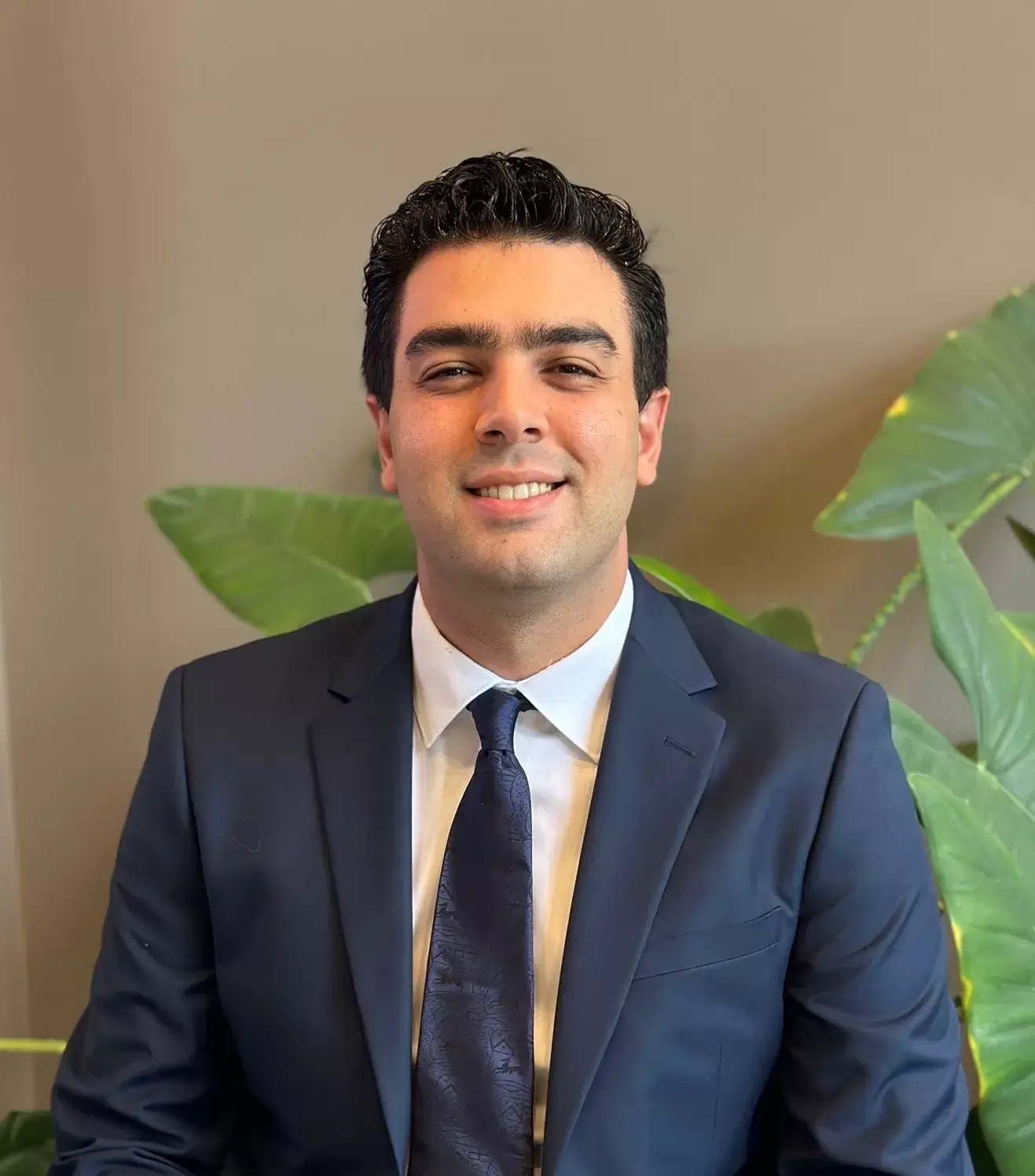Psychotherapy for Eating Disorders in Oakville Ontario
Committing to Psychotherapy and Counseling services is a powerful way to improve your mental health. Whether you’re struggling with couples or marriage issues, or seeking help for anxiety, managing ADHD, therapy helps strengthen family relationships and supports healthier communication.
- Psychotherapy For Men
- Psychotherapy for Women
- Depression
- Family Counselling Therapy
- Marriage Counselling and Therapy
- Couples Counselling And Therapy
- Family Counselling Therapy
- Child Counselling Therapy
- Anxiety Disorders
- Stress Management
- Trauma and PTSD
- Addiction
- Eating Disorders
- Self-Esteem and Self-Identity
- Grief and Loss
- Mood Disorders
- Personality Disorders
At Oakville Psychotherapists, we specialize in providing mental health services for individuals struggling with eating disorders. Our team of experienced therapists is dedicated to creating personalized treatment plans that incorporate evidence-based practices. We believe in holistic care and utilize a variety of therapeutic modalities to promote healing and long-lasting well-being. Our customized approaches include Cognitive-Behavioral Therapy (CBT) to address negative thoughts, Interpersonal Therapy (IPT) to improve relationships, and Family-Based Therapy (FBT) to nurture family dynamics. Contact us today to start a journey towards developing a healthier relationship with food and emotions.
Oakville's Registered Psychotherapist
About Oakville Psychotherapist
At Oakville Psychotherapist, we offer comprehensive mental health services in a compassionate and professional setting. Located in Oakville, Ontario, our clinic specializes in providing therapy for individuals struggling with eating disorders. Our team of experienced therapists is dedicated to guiding our clients towards recovery through personalized treatment plans tailored to their unique needs.
Our therapists at Oakville Psychotherapist are committed to supporting individuals in their journey towards mental wellness and healing. With a focus on evidence-based practices, we provide thorough care that addresses the complexities of eating disorders. Through therapy, we aim to empower individuals to challenge harmful assumptions and behaviors, fostering long-term recovery and improved mental well-being.
In our clinic, we recognize the importance of a holistic approach to treatment, incorporating various therapeutic modalities to support individuals in their recovery journey. Whether you are seeking support for anorexia nervosa, bulimia nervosa, or binge eating disorder, our team is here to provide you with the guidance and resources needed to promote healing and growth.


Exploring the complexity of Eating Disorders
In our practice, we recognize the intricate nature of eating disorders and strive to offer comprehensive mental health services to assist individuals grappling with these conditions. A deep understanding of eating disorders like anorexia nervosa and bulimia nervosa is crucial in guiding effective treatment strategies. Psychotherapy, specifically cognitive-behavioral therapy (CBT) and interpersonal therapy, plays a pivotal role in addressing these disorders. It is essential to have a specialized treatment team, including top eating disorders therapists, to deliver personalized care for each person. Adolescent therapy holds particular significance, as early intervention can lead to better long-term outcomes. Our practice emphasizes a holistic approach that combines psychotherapy with other forms of support such as nutrition counseling and medical care. By working collaboratively with our clients and their families, we aim to create a nurturing environment that fosters healing and recovery from eating disorders.
Cognitive-Behavioral Therapy (CBT)
In our practice, we prioritize the use of evidence-based strategies such as Cognitive-Behavioral Therapy (CBT) as a fundamental component in our treatment of eating disorders. CBT is widely acknowledged for its efficacy in addressing bulimia nervosa and binge eating disorder. This therapeutic approach is centered on challenging negative thoughts and behaviors related to food, body image, and weight. By focusing on emotional regulation and cultivating healthier coping mechanisms, CBT empowers individuals to effectively manage their symptoms of the eating disorder.
The therapeutic relationship plays a crucial role in the success of CBT interventions for eating disorders. Establishing a strong and trustworthy bond between the therapist and the individual enhances the impact of the treatment. Through CBT, individuals learn to recognize triggers that contribute to their disordered eating habits and acquire skills to adjust their responses. This active engagement in therapy, in conjunction with the guidance of a skilled therapist, leads to enduring positive outcomes on the path to recovery from eating disorders.


Interpersonal Therapy (IPT)
At Oakville Psychotherapists, we incorporate Interpersonal Therapy (IPT) as a complementary approach in our eating disorder counselling. IPT is a therapeutic modality that focuses on improving interpersonal relationships and communication skills to address emotional regulation and social functioning. By integrating IPT into our holistic approach to psychotherapy for adolescents with eating disorders, we aim to work collaboratively within a treatment team to provide inclusive care alongside other modalities such as Cognitive-Behavioural Therapy (CBT).
IPT is particularly valuable for adolescents struggling with eating disorders, as it targets underlying relational issues that may contribute to disordered eating behaviors. By incorporating elements of family therapy, IPT strives to enhance communication within the family system and promote healthier interactions. This approach helps individuals develop essential skills for navigating relationships and managing emotions effectively.
In our practice, we firmly believe that the integration of IPT enhances the overall effectiveness of our treatment plans, fostering long-term recovery and improved well-being for individuals grappling with eating disorders.
Family-Based Therapy (FBT)
At Oakville Psychotherapists, we integrate Family-Based Therapy (FBT) as a foundational component of our comprehensive approach to addressing eating disorders. Family therapy plays a crucial role in our adolescent eating disorders program, focusing on the Maudsley Approach to explore and improve family dynamics and relationships. FBT highlights the importance of involving families in the treatment process, particularly post weight restoration, to offer emotional support and ensure inclusive care for adolescents. Through the integration of family therapy, our goal is to cultivate a nurturing environment that aids in weight restoration and fosters positive family connections. This approach not only supports adolescents on their path to recovery but also enhances emotional well-being by enhancing understanding and enhancing family dynamics. We firmly believe that incorporating family-based therapy into our holistic treatment plan is essential for the comprehensive care of adolescents grappling with eating disorders.


Dialectical Behavior Therapy (DBT)
Dialectical Behavior Therapy (DBT) is a highly regarded and evidence-based therapeutic approach used in treating a range of mental health issues, including eating disorders. DBT focuses on enhancing emotional regulation, interpersonal effectiveness, distress tolerance, and mindfulness skills to help individuals identify and challenge the distorted thoughts that contribute to their disordered eating behaviors.
In DBT, clients learn to effectively manage intense emotions, develop strategies for navigating complex interpersonal relationships, and cultivate mindfulness practices to remain present in the moment. This therapy is especially beneficial for those struggling with borderline personality disorder, where emotional dysregulation and impulsivity are key factors.
Through skill-building exercises and therapeutic interventions, DBT provides individuals with the tools to cope with distress, improve communication, and address the cognitive distortions that drive their disordered eating habits. By incorporating DBT into their treatment plan, individuals with eating disorders can progress towards lasting recovery and enhanced overall well-being.
Reasons to Seek Psychotherapy - Therapy for eating disorders
Psychotherapy is a powerful tool that can greatly benefit individuals struggling with various mental health conditions, including eating disorders. When it comes to eating disorders, Cognitive Behavioral Therapy (CBT) is particularly effective in helping individuals regulate their emotions, build self-esteem, and establish healthier eating patterns. Through CBT, individuals can challenge and change harmful beliefs and behaviors, leading to positive transformations. A crucial aspect of successful psychotherapy is the therapeutic bond between the individual and the therapist, which significantly enhances the effectiveness of treatment for different types of eating disorders and any accompanying mental health issues.
Furthermore, outpatient CBT has shown great promise in real-world clinical settings, as it allows individuals to practice and apply the skills they learn in therapy to their daily lives. This approach not only provides support during treatment but also helps sustain improvements in behaviors like bingeing and purging even after treatment ends. By engaging in psychotherapy, individuals with eating disorders can develop essential coping strategies, improve their relationship with food, and progress towards lasting recovery in a supportive and practical way.


The role psychotherapy plays in treating eating disorders symptoms is crucial
In the realm of treating eating disorders symptoms, it is crucial to acknowledge the profound impact of therapeutic interventions on symptom management and overall recovery. Psychotherapy, encompassing cognitive-behavioral therapy (CBT) and family therapy, holds a central position in addressing the intricate nature of eating disorders. For adolescents grappling with eating disorders, therapy offers a secure environment to delve into underlying issues, cultivate coping strategies, and enhance their relationship with food. The comprehensive approach provided by psychotherapy not only concentrates on alleviating symptoms but also fosters emotional well-being and sustainable recovery.
Within the treatment of eating disorders, therapy directs its focus towards symptoms like binge eating, purging behaviors, and distorted body image. Through the integration of cognitive-behavioral techniques, individuals acquire the skills to challenge negative thoughts and behaviors surrounding food and body image. Family therapy, particularly advantageous for adolescents, tackles family dynamics that may contribute to the onset or perpetuation of the disorder. In essence, therapy assumes a critical role in equipping individuals with the tools and guidance needed to navigate their journey towards physical health, healing and recovery.
Connect with our therapists at Oakville Psychotherapists
Welcome to Oakville Psychotherapists! If you are struggling with emotional and behavioral challenges related to disordered eating, our team is here to help. You can reach us at (647) 360-5880 or visit our office at 243 North Service Rd W #106F, Oakville, ON L6M 3E5. We specialize in providing expert counsel and therapy for eating disorders, specifically catering to adolescents and individuals who need support in this area. Our center in Oakville, Canada, offers a safe and welcoming space where you can schedule therapy sessions with experienced professionals who are dedicated to helping you heal and recover. Whether you are dealing with issues related to food, body image, or behavioral patterns, we are here to create a personalized treatment plan that supports your well-being. Contact us today to start your journey towards a healthier relationship with food, body, and emotions. At Oakville Psychotherapists, we are committed to offering comprehensive care that addresses the complexities of eating disorders and guides you towards a path of healing.
Commonly asked inquiries
Can Psychotherapy Be Beneficial in Exploring and Healing Underlying Trauma Associated with Eating Disorders?
Certainly, psychotherapy can be a valuable tool in exploring and addressing the underlying trauma that is often connected to eating disorders. Through therapy, we can work together to uncover and process the traumatic experiences that may be influencing disordered eating behaviors. Techniques such as Cognitive Behavioral Therapy (CBT) and Interpersonal Therapy (IPT) can be especially helpful in understanding and healing the impact of trauma on eating habits. Collaborating with a therapist to delve into these connections can play a crucial role in supporting your recovery journey and developing healthier coping strategies.
Are there specific therapeutic interventions for addressing eating disorder triggers that arise in social environments?
In the realm of managing eating disorder triggers in social settings, our primary focus is on implementing coping strategies and enhancing communication skills. Our work involves identifying triggers, cultivating healthy responses, and establishing clear boundaries. Through the practice of mindfulness and self-awareness, we are able to navigate social situations with skill and grace. Seeking support from loved ones and healthcare professionals plays a crucial role in effectively managing triggers and fostering positive interactions. It is essential to prioritize self-care and utilize therapy techniques that are tailored to the unique needs of each individual in order to achieve successful outcomes.
How can the therapeutic process support the reconstruction of self-identity and self-worth while in recovery?
Psychotherapy is a crucial component in the process of rebuilding one’s self-identity and self-worth during the journey of recovery. In therapy, we delve into the underlying issues, confront negative beliefs, and develop effective coping mechanisms. As therapists, we assist individuals in recognizing their strengths and nurturing a positive self-image. By addressing emotional obstacles and encouraging self-compassion, psychotherapy empowers individuals to redefine their self-identity and enhance their self-worth as they progress towards recovery.
Is there a place for group therapy in the treatment of eating disorders at Oakville Psychotherapists?
Group therapy can play a valuable role in the treatment of eating disorders. It offers a safe and supportive space for individuals to connect with others who are going through similar experiences. This sense of community and shared understanding can aid in the healing journey. Group therapy also provides opportunities for social interaction, peer support, and a collaborative effort to address the challenges of recovery. When used in conjunction with individual therapy, group therapy can enhance the effectiveness of treatment and support overall progress towards healing.
Are there specific therapy programs tailored for individuals with both mental health disorders and eating disorders?
Absolutely, there are specialized therapy programs designed specifically for individuals who have both mental health conditions and eating disorders. These programs provide comprehensive treatment plans that target both the underlying mental health issues and the disordered eating behaviors. They utilize a holistic approach, incorporating psychotherapy, medication management, and other interventions to support individuals in their path to recovery. Opting for these specialized programs can offer personalized care and improved outcomes for those dealing with the complexities of both mental health and eating disorders.
About Town of Oakville
Oakville, a scenic town situated between Toronto and Hamilton, is celebrated for its stunning parks, well-kept neighborhoods, and strong sense of community. With parks like Tannery Park offering serene views of Lake Ontario, Oakville residents enjoy easy access to nature right within the town’s limits. The expansive Bronte Creek Provincial Park is perfect for families and nature lovers, featuring hiking trails, children’s play areas, and picnic spots. Gairloch Gardens, with its beautifully landscaped grounds and lakeside location, provides a tranquil retreat for those looking to escape into nature or appreciate art in the park’s on-site gallery.


The town’s neighborhoods, including the bustling Downtown Oakville and the historic district of Old Oakville, showcase a harmonious blend of modern convenience and traditional charm. Downtown Oakville, with its boutique shops, cafes, and cultural festivals, is a hub of activity, while Old Oakville’s cobblestone streets and heritage homes offer a glimpse into the town’s rich history. Neighborhoods like Glen Abbey, known for its renowned golf course, and Joshua Creek, with its modern amenities and proximity to top-rated schools, make Oakville a desirable location for families. Whether you’re enjoying a day at one of Oakville’s many parks or exploring its unique neighborhoods, the town offers a perfect balance of natural beauty and urban life.
- Dundas Street (Highway 5)
- Trafalgar Road
- Lakeshore Road
- Speers Road
- Third Line
- Upper Middle Road
- Bronte Road
- QEW (Queen Elizabeth Way)
- North Service Road
- South Service Road
- Maple Grove Drive
- Burnhamthorpe Road
- Glenashton Drive
- Royal Windsor Drive
- Winston Churchill Boulevard
- Ford Drive
- Dorval Drive
- Rebecca Street
- Great Lakes Boulevard
- 16 Mile Drive
- West Oakville
- Falgarwood
- Kerr Village
- Clearview
- West Oak Trails
- Bronte
- Palermo
- Ennisclare Park
- Glen Abbey
- Uptown Core
- Oakville East L6K
- Oakville South L6L
- Oakville North L6H
- Oakville West L6M
- Oakville Northeast L6J


